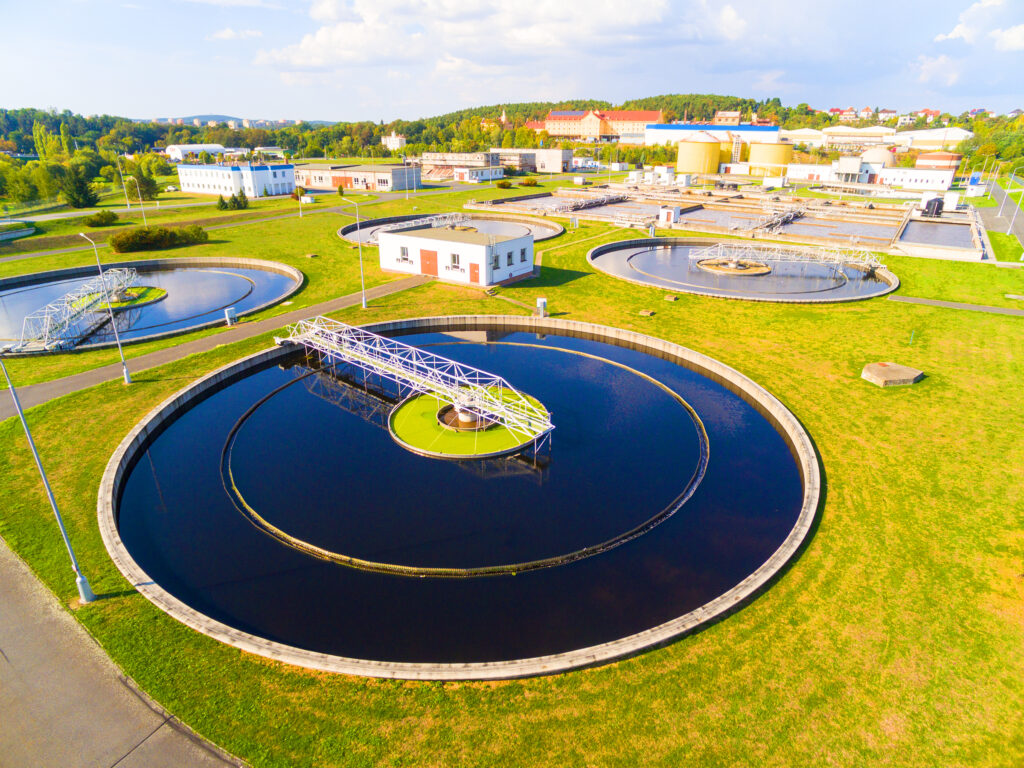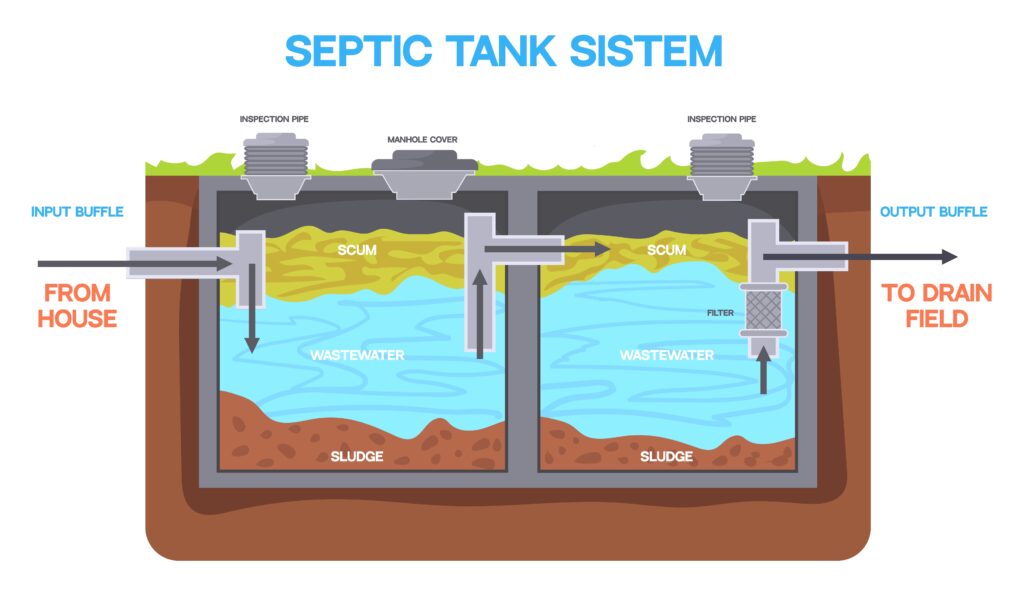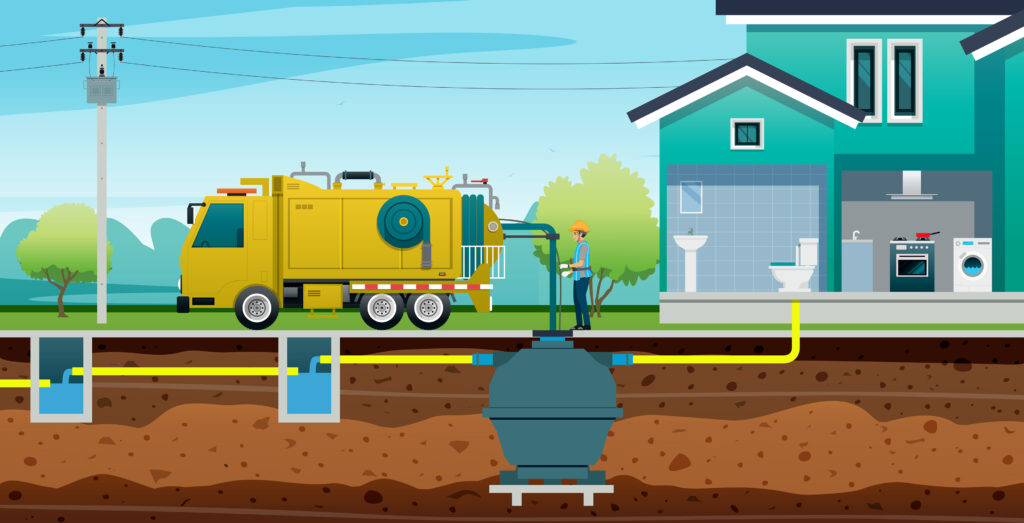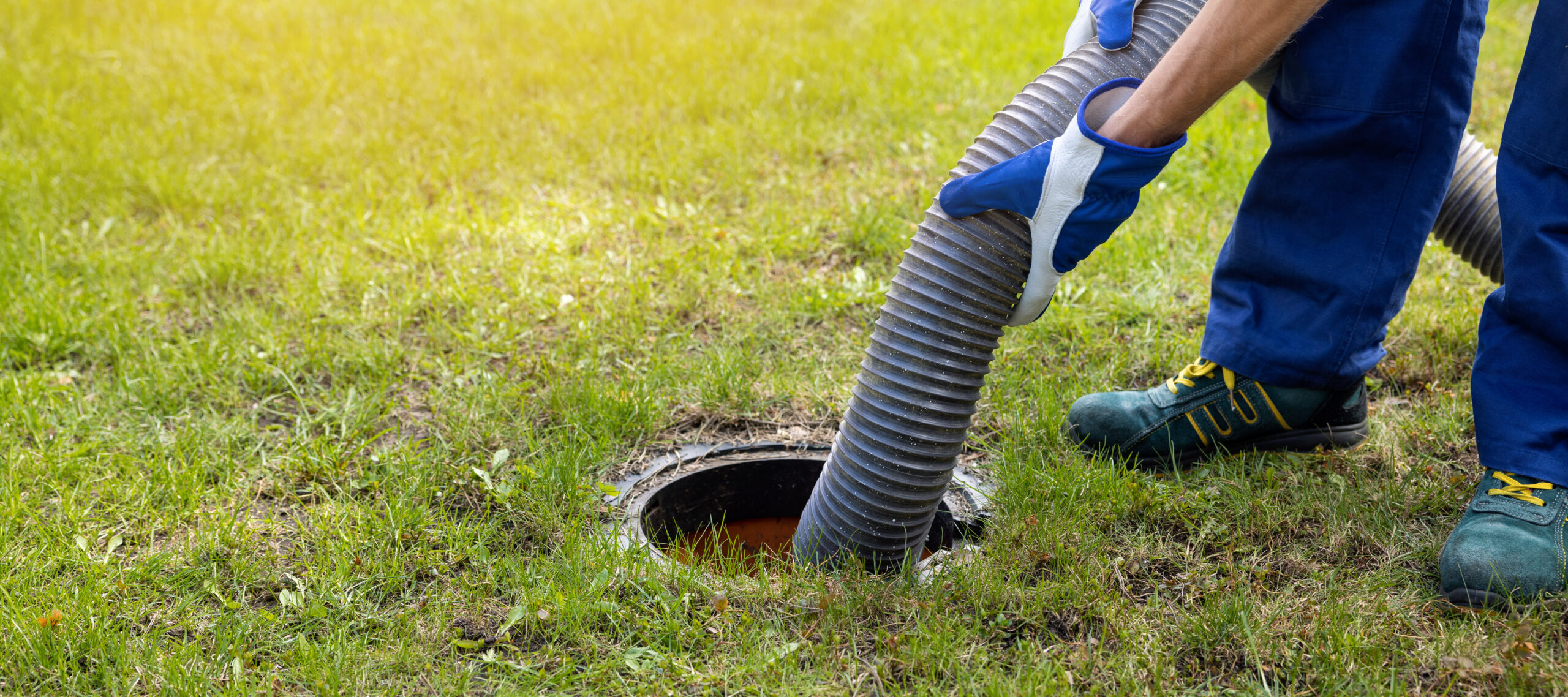Is Your Septic System Leaking?

What is a septic system?


The reality is that sewers cannot be installed throughout Puerto Rico, due to high installation costs, environmental impacts, and land features.
A well-designed, well-constructed, and well-maintained septic system

How to spot a failing septic system?
1
Groundwater pollution: If a septic system is damaged or poorly constructed, waste can leak into groundwater or nearby surface water bodies, contaminating drinking water sources. This can cause health problems for people who consume this water and damage aquatic ecosystems.
2
Soil pollution: Untreated waste leaking from the septic tank can contaminate the soil, affecting its quality and ability to support plant life. This can affect agriculture and local biodiversity.
3
Air pollution: Gases generated by the decomposition of waste in a septic system can escape into the atmosphere. These gases include methane, a potent greenhouse gas, and volatile compounds that can contribute to poor air quality and cause unpleasant odors. Breathing methane in large quantities can cause nausea, vomiting, dizziness and suffocation.
4
Disease risk: Sewage seepage can increase the risk of gastrointestinal illness for humans and wildlife. Some microorganisms transmitted by contaminated water and causing diseases are: Cholera, E. Coli, Salmonella, Hepatitis A, Giardia Lamblia, Norwalk Virus, Shigella and Cryptosporidium.
5
Impact on wildlife: Pollution of surface and groundwater can affect wildlife that depend on these resources for their survival. Additionally, chemicals present in wastewater can directly affect aquatic organisms.
6
Fines and Loss of Property Value: A well that does not comply with established regulations detracts greatly from the value of a property, in addition to the owner risking being penalized by government agencies such as the Environmental Protection Agency (EPA), the Environmental Quality Board and the Department of Natural Resources. Polluting soil and water due to a failed septic tank is considered a crime under the penal code.
Visit the Puerto Rico Penal Code (pages 91 and 92) for more information:
- Article 235 – Poisoning of waters for public use
- Article 236 – Environmental pollution
- Article 237 – Aggravated environmental pollution
It's your waste, it's your responsibility.
What can you do to have a healthy septic system?
1
Visit the Environmental Protection Agency’s website: How to Care for Your Septic System
2
If your system leaks, overflows, smells bad, or attracts vermin, you’ll want to consult with a specialist.
3
Be “SepticSmart”. Visit the Environmental Protection Agency’s SepticSmart website to learn tips on how to optimize the use of your septic system.
4
Empty your septic system regularly. The emptying frequency will depend on the size of your system and the number of people using the building. Visit the Services section to contact your municipality for the septic system emptying services they offer.
5
Visit this page and AtmaGO regularly, receive notifications, and stay up to date!
